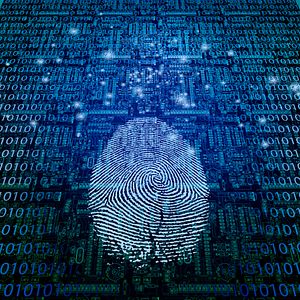A Washington Post report released earlier this week shed light on the Pakistani government’s incredibly ambitious plan to make it impossible to own a cellphone without providing biometric data to the government. As part of its plan, the Pakistani government will force phone service providers to terminate service for anyone who fails to provide fingerprints for use in a national database. As the report details, the government initiative is an outside-the-box attempt to make terrorism preventable and detectable in Pakistan. Pakistan suffers scores of deadly terror attacks every year at the hands of radical militant groups. Although the Pakistani military embarked on a major anti-terror offensive last year, Pakistan’s police and security apparatus remains woefully unequipped to prevent attacks.
The Pakistan Telecommunications Authority estimates there are at least 136 million cellphone subscribers in Pakistan. Pakistan, like other South Asian states, has witnessed explosive growth in personal cellphone ownership; in 2003 only 5 million Pakistanis owned cellphones.
Nawaz Sharif’s government has been under considerable pressure to appear strong on terrorism ever since the Taliban brutally murdered over 100 Pakistani school children at a school in Peshawar. If Sharif’s government wanted to show every Pakistani household that it was doing something, it chose the right way to do it. Pakistanis far and wide have taken notice of the government plan and are lining up to provide fingerprints lest they lose their connectivity. According to the report, “53 million SIMs belonging to 38 million residents have been verified through biometric screening.”
While the government’s plan appears to be serious and sufficiently “21st century” with its focus on cellphone activity, it is highly unlikely that Pakistani police and security agencies will be able to usefully leverage the biometric data gained through this initiative to prevent terror attacks. What the database will do is make it easier to track terror culprits after the fact.
Practicality aside, the initiative does raise some concerns about privacy. The Post article features a series of quotes by Ammar Jaffi, the former deputy director of Pakistan’s Federal Investigation Agency, that suggest the government has little interest in preserving convenience or privacy. Jaffri, for example, notes that Pakistanis should simply accept that a cellphone and SIM card are a “part of you,” adding that collecting biometric data on cellphone users is something Pakistan “shouldn’t be afraid of.” “Watching people when they move, it’s natural: Every country does it,” he adds. The Post report suggests that Pakistan’s terror-weary population is eager to try anything to prevent more attacks. After the brutality that befell Peshawar in December, the Pakistani public is desperate for a solution.
All this said, the Pakistani public may be about to give up its privacy and convenience for nothing. After all, the reason terrorism is such a persistent threat is due to terror groups’ ability to constantly adapt to new obstacles in a cat-and-mouse game with governments the world over. Now that cellphones are a nuisance, terror cells can move to satellite phones for communications, all for the cost of a couple assault rifles. (An AK-47, for instance, runs roughly between 30,000 and 80,000 rupees [$300 to $800 roughly] in Pakistan depending on its condition). Additionally, innocent Pakistanis could find themselves coerced to register SIM cards under their name for use by terrorists, leading Pakistani authorities on a wild goose chase.
The Pakistani government’s investment in this nationwide biometric database will be far from a silver bullet for the country’s terror problem. Still, anything the government can do to make communication and coordination more difficult for terrorists is a good thing. The United States has long been eager to see Pakistan take up the issue of domestic terrorism and it finally seems to be doing so. U.S. intelligence agencies have the necessary competencies and experience to make effective sense of large biometric databases, particularly given the proliferation of biometric information collection following 9/11 across the country. They should share best practices with Pakistan’s Federal Investigation Agency. Even if the skeptics prove right and this initiative is nothing more than an attempt by the Sharif government to be seen as doing “something” to combat terrorism, the resulting database, with the right analytical infrastructure, could prove immensely useful for counter-terrorism.

































